Trash and recyclables are an inevitable part of our daily lives. Whether in households, apartments, commercial spaces, or public areas, efficient waste management plays a crucial role in safeguarding the environment and promoting sustainability. In this article of howtowikiguide , we will explore the best practices and innovative solutions for storing trash and recyclables responsibly.
Introduction
Proper trash and recyclable storage is not only essential for maintaining cleanliness and hygiene but also for preserving the environment. When waste is stored appropriately, it minimizes the risk of attracting pests and rodents, reduces odors, and prevents littering.
The Importance of Proper Trash and Recyclable Storage
Storing trash and recyclables properly is vital for several reasons. Firstly, it ensures that waste is disposed of correctly, following local regulations and guidelines. Secondly, it prevents the contamination of recyclable materials, allowing for more effective recycling processes. Additionally, adequate waste storage helps in reducing the overall volume of trash, promoting sustainable waste management practices.
Guidelines for Storing Trash and Recyclables
Separate Bins for Trash and Recyclables
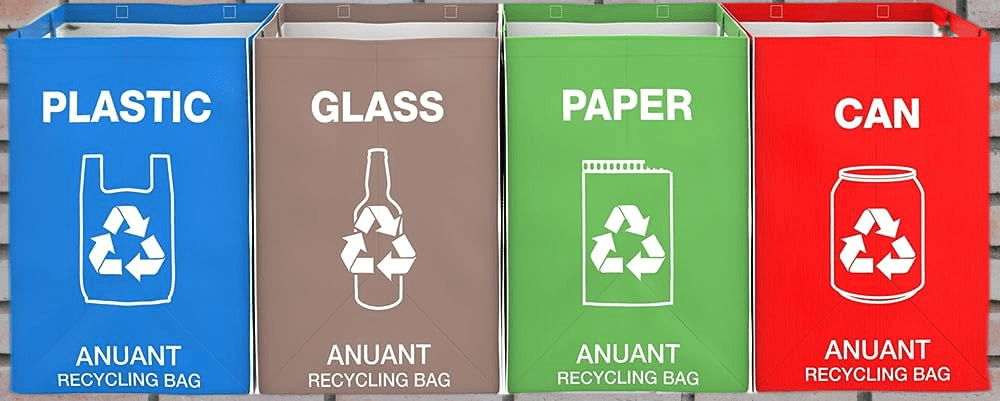
Separate bins for trash and recyclables are a vital part of responsible waste management. These bins provide a straightforward way to sort waste into two distinct streams: materials that can be recycled and those that cannot.
The trash bin is designated for non-recyclable items like food waste and certain plastics, minimizing contamination of recyclables. This helps reduce landfill usage and associated environmental impacts.
The recycling bin is meant for paper, cardboard, glass, aluminum, and plastics that can be reprocessed. Recycling conserves resources, reduces energy consumption, and lowers carbon emissions compared to making products from raw materials.
This practice offers numerous benefits, including waste reduction, extended landfill life, and community education. Separating waste at the source promotes eco-friendly habits and empowers individuals to contribute to a more sustainable future. By simply using separate bins, we take a significant step towards a cleaner environment and efficient resource use.
Using Sealable Containers
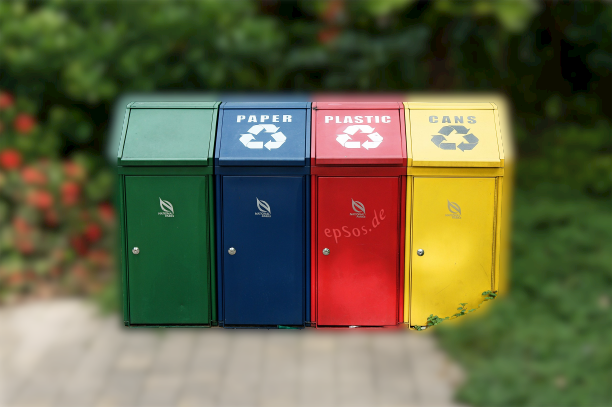
Employing sealable containers for storing both trash and recyclables offers a practical and hygienic solution to waste management. These containers, equipped with secure lids, prove valuable in maintaining cleanliness and facilitating proper waste separation.
For trash, sealable containers help contain odors, prevent pests, and minimize potential leakage. They create a barrier that contains unpleasant smells and prevents scavengers from accessing waste, thus promoting a more sanitary environment. This approach is particularly beneficial for disposing of food scraps and other organic materials.
Similarly, using sealable containers for recyclables ensures that items like paper, cardboard, plastics, and glass remain uncontaminated and protected from the elements. This prevents the dispersion of lightweight materials due to wind and rain, reducing litter and enhancing the efficiency of recycling collection and processing.
Moreover, sealable containers contribute to waste reduction by minimizing the risk of accidental spillage or scatter, which can lead to unnecessary waste generation. This practice aligns with sustainability goals by ensuring that recyclables are kept intact and are of higher quality, ultimately increasing the likelihood of successful recycling.
Regular Cleaning and Maintenance
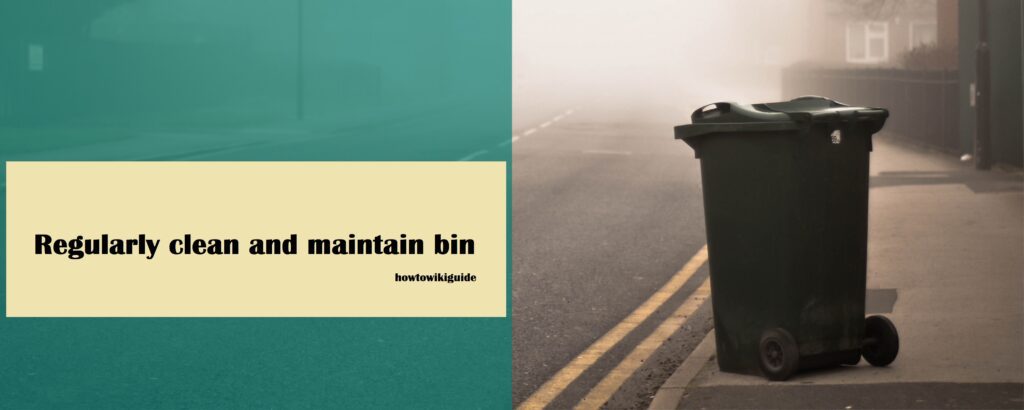
Regular cleaning and maintenance of bins used for storing trash and recyclables are crucial aspects of effective waste management. Proper upkeep ensures that these containers remain functional, hygienic, and contribute to a cleaner environment.
Regular cleaning of trash bins is essential to prevent foul odors and the buildup of bacteria. Food waste and other organic materials can leave residues that attract pests and cause unpleasant smells. By regularly cleaning and disinfecting trash bins, these issues can be mitigated, promoting a healthier living environment and reducing the risk of disease transmission.
Similarly, maintaining recyclable bins in a clean condition is essential for efficient recycling. Contaminated recycling materials can render entire batches unsuitable for recycling facilities, resulting in unnecessary waste. Regular cleaning helps to remove any leftover food, liquids, or non-recyclable items from the containers, ensuring the recyclables stay uncontaminated and ready for processing.
Proactive maintenance is also vital to address any wear and tear or damage to the bins. Broken lids, cracked containers, or malfunctioning wheels can impede waste collection and disposal processes. Regular maintenance checks allow for timely repairs or replacements, prolonging the lifespan of the bins and avoiding potential disruptions in waste management operations.
Keeping Bins Secure
Ensuring the security of bins used for storing trash and recyclables is a vital component of responsible waste management. Keeping bins secure not only prevents unauthorized access but also contributes to a cleaner and safer environment.
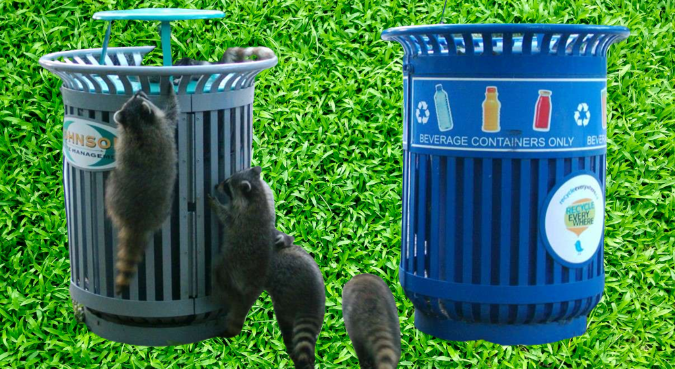
Securing bins helps deter pests and scavengers from rummaging through waste, which can lead to unsightly litter and potential health hazards. It also minimizes the risk of animals spreading trash, reducing the chances of contamination and disease transmission.
Furthermore, secure bins prevent wind from scattering lightweight materials, such as papers and plastics, which can contribute to littering and environmental pollution. By keeping the bins closed and secure, we contribute to maintaining the overall cleanliness and aesthetics of our surroundings.
Bins with secure lids also play a role in preventing odor leakage, enhancing the overall quality of the living environment. This is particularly important for bins storing food waste or other potentially odorous materials, as it helps mitigate unpleasant smells that can disrupt the surrounding area.
Incorporating locks or sturdy closures on bins can also deter unauthorized dumping, which can lead to improper waste disposal practices. By ensuring the security of bins, we encourage proper waste separation, disposal, and recycling, contributing to a more efficient and sustainable waste management system.
Best Practices for Outdoor Trash and Recyclable Storage
Choosing the Right Location
Placing outdoor trash and recyclable bins in a suitable location is essential. It should be easily accessible for waste disposal and collection while not causing obstructions or safety hazards.
Using Animal-Proof Containers
In areas where wildlife is prevalent, using animal-proof containers is crucial. These containers are designed to prevent animals from accessing the waste, reducing the chances of scattered trash.
Proper Lids and Covers
Bins with proper lids and covers prevent rainwater from entering and accumulating in the containers. This helps in maintaining dry waste and facilitates easier handling during collection.
Trash and Recyclable Storage in Apartments and Condominiums
Community Guidelines and Regulations
Apartments and condominiums often have specific waste management guidelines that residents must follow. It is essential to familiarize oneself with these rules to ensure compliance.
Designated Storage Areas
In multi-unit residences, having designated trash and recyclable storage areas helps in keeping the common spaces clean and organized.
Trash and Recyclable Storage for Commercial Spaces
Compliance with Local Regulations
Commercial establishments must adhere to local waste management regulations. This includes proper segregation of waste, providing recycling options, and disposing of hazardous materials appropriately.
Implementing Recycling Programs
Commercial spaces can take the lead in promoting recycling by implementing comprehensive recycling programs. This can involve educating employees and customers about recycling practices and providing dedicated recycling bins.
Innovative Solutions for Trash and Recyclable Storage
Smart Waste Bins
Smart waste bins equipped with sensors can optimize waste collection routes, leading to more efficient waste management and reduced environmental impact.
Composting Systems
Implementing composting systems for organic waste can significantly reduce the volume of trash and contribute to sustainable waste disposal.
Recycling Stations
Establishing recycling stations in public areas, commercial spaces, and communities makes recycling more accessible and encourages people to participate actively.
Tips to Reduce Waste Generation
Conscious Shopping Habits
Being mindful of our consumption choices and opting for products with minimal packaging can help reduce waste generation.
Adopting a Zero-Waste Lifestyle
Embracing a zero-waste lifestyle involves minimizing waste production through practices such as composting, reusing items, and choosing eco-friendly alternatives.
The Environmental Impact of Proper Trash and Recyclable Storage
Proper trash and recyclable storage holds a significant environmental impact. Appropriate waste separation and containment help reduce pollution and habitat disruption. By preventing litter from entering ecosystems, we safeguard wildlife and maintain the beauty of our surroundings.
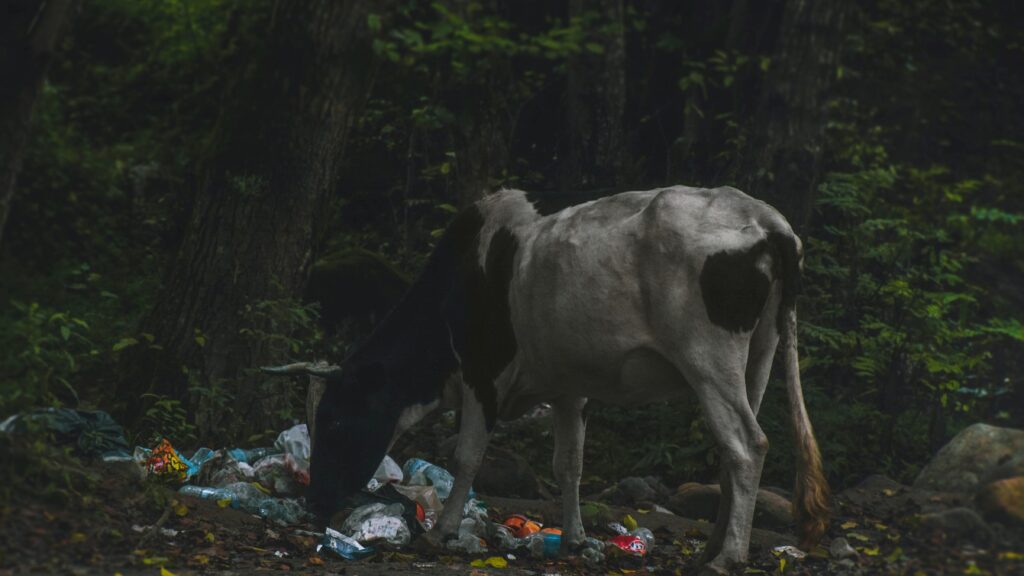
A key benefit of correct storage is the reduction of landfill usage. Properly contained trash prevents the release of harmful gases like methane, mitigating their contribution to climate change. Moreover, effective storage of recyclables ensures efficient processing, conserving energy and natural resources required for new product manufacturing. Additionally, this practice aids in preventing animals from consuming discarded waste.
Responsible storage practices also encourage community engagement in waste reduction. Witnessing the positive effects of proper disposal fosters a culture of environmental awareness. It motivates individuals to adopt sustainable habits, ultimately leading to a cleaner, healthier planet.
FAQs
- Can I use regular plastic bags for recyclables? It is best to avoid using regular plastic bags for recyclables as they can contaminate the recycling process. Instead, use reusable or paper bags.
- What can I do with old electronics and batteries? Electronic waste and batteries should be disposed of at designated e-waste collection centers to ensure their safe recycling or disposal.
- How frequently should I clean my trash and recycling bins? Cleaning your trash and recycling bins at least once a month is recommended to maintain cleanliness and prevent foul odors.
- Can I recycle pizza boxes with leftover food on them? Pizza boxes with significant food residue should not be recycled. Tear off the clean parts for recycling and dispose of the soiled portion as trash.
- Are all plastics recyclable? Not all plastics are recyclable. Check with your local recycling facility for the types of plastics they accept for recycling.
Conclusion
In conclusion, proper trash and recyclable storage are fundamental aspects of responsible waste management. By following guidelines for waste separation, using appropriate containers, and adopting innovative solutions, we can all contribute to a cleaner, healthier planet. Let us make a collective effort to protect our environment for future generations.




2 thoughts on “How Should Trash and Recyclables Be Stored?”
Comments are closed.